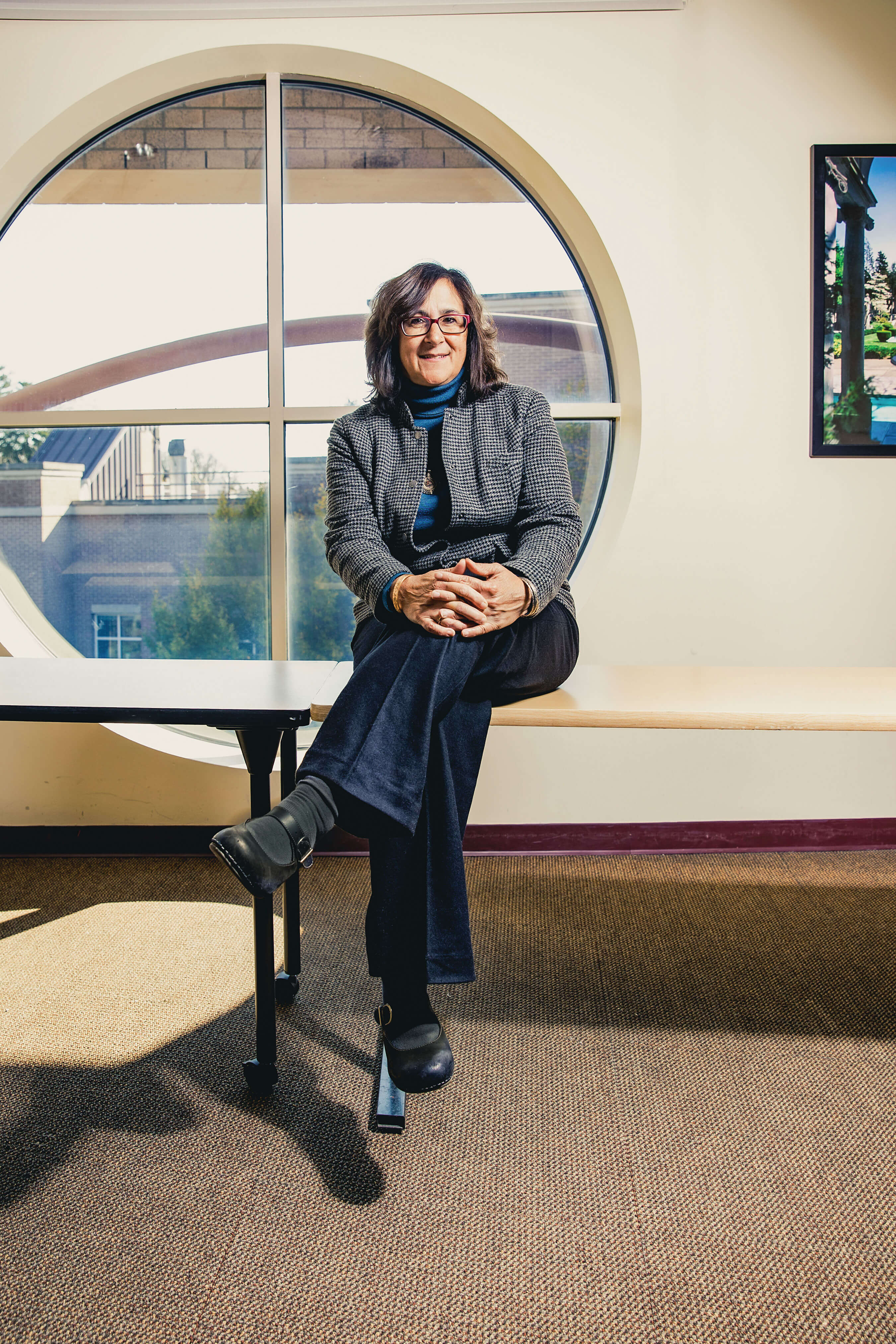
Teaching the Tough Topics
Three questions for Anne Deepak, NASW-NJ’s Academic of the Year.
The National Association of Social Workers-New Jersey chapter (NASW-NJ) recently named Associate Professor of Social Work Anne Deepak the 2022 Academic of the Year, lauding her leadership in the areas of advancing anti-racism and social justice and developing and applying a postcolonial feminist social work perspective to global issues and education.
Deepak’s scholarship and research focuses on the development and application of a postcolonial feminist social work perspective to global social problems, the role of social work in addressing climate justice, and the examination of the delivery of social justice and diversity content in social work education. In addition to her teaching schedule, Deepak serves as the co-chair of Monmouth University’s Growing Together as Allies (GTAA), a group committed to anti-racism and racial equity work. She also represents the International Federation of Social Workers (IFSW) at the United Nations as a member of the New York team. She talked with us recently about that work.
How does your service outside the classroom impact your teaching?
I recently co-authored a policy statement adopted by IFSW, The Role of Social Workers in Advancing a New Eco-social World. I used this policy statement in the syllabus for a course I am teaching in Monmouth’s new Doctor of Social Work program in Human Rights Leadership. The policy, adopted by IFSW in May 2022, articulates IFSW’s position on co-building a new eco-social world grounded in a holistic human rights framework. It is a call to action for governments and key stakeholders to recognize social workers as key partners in the global action by engaging and working with communities as agents of change in building a more sustainable and just world.
In that course, we also explore the history of social work through the lens of anti-racism, intersectional feminism, and global justice. There are a lot of topics that I didn’t learn when I was getting my degrees, and some things that most people don’t really learn. There are some uncomfortable histories of complicity with racism in social work, but there are also some beautiful ones, including the parallel histories of Black social workers and global and local human rights leadership. The content in the course can be hard to tackle, but my students are learning about these things and will be able to use that
in their own trajectories for human rights leadership in social work.
Can you talk about your work with GTAA?
Growing Together as Allies is a committee of students, alumni, and faculty from the School of Social Work that works to advance anti-racism in our school, the University, and the community. It started as an informal group several years ago and served as a space for people to come together and educate one another around the intersection of oppression and anti-racism. After Dean Robin Mama formalized GTAA as a committee within the School of Social Work, our work expanded.
Together with faculty, students, and alumni, we wrote an anti-racism statement that was unanimously approved by the School of Social Work. Since then, we have hosted listening sessions and started an annual lecture series. Our most recent event, held in December, was a panel discussion, Advancing Anti-racism through Intergenerational Conversations: Power and Possibility in Latinx Communities, featuring social work educators and practitioners, students, and alumni. I think GTAA is a prime example of how people can make change in an organization, even if you’re at a predominantly white university. It can be done, but it requires a sustained commitment.
Are people becoming more aware of the impact social workers can have on systemic issues?
I think so, in part because people saw the impact of COVID-19, and how important public health is, and the big-picture issues that impact people’s individual physical and mental health.
In the U.S., 90% of social work graduate students pursue clinical social work, while only 10% pursue macro work. While there are many ways that this work overlaps, there is still a lack of awareness that social work goes beyond working with individuals. Most people think of social work and wonder, how does that include social justice and human rights? How are those connected? Our MSW program helps students to understand these interconnections.
Our Global and Community Practice macro specialization prepares students to work to change systems, in partnership with groups, organizations, and communities, to think in a bigger-picture way about how to address such far-reaching concerns as environmental justice and global women’s issues.